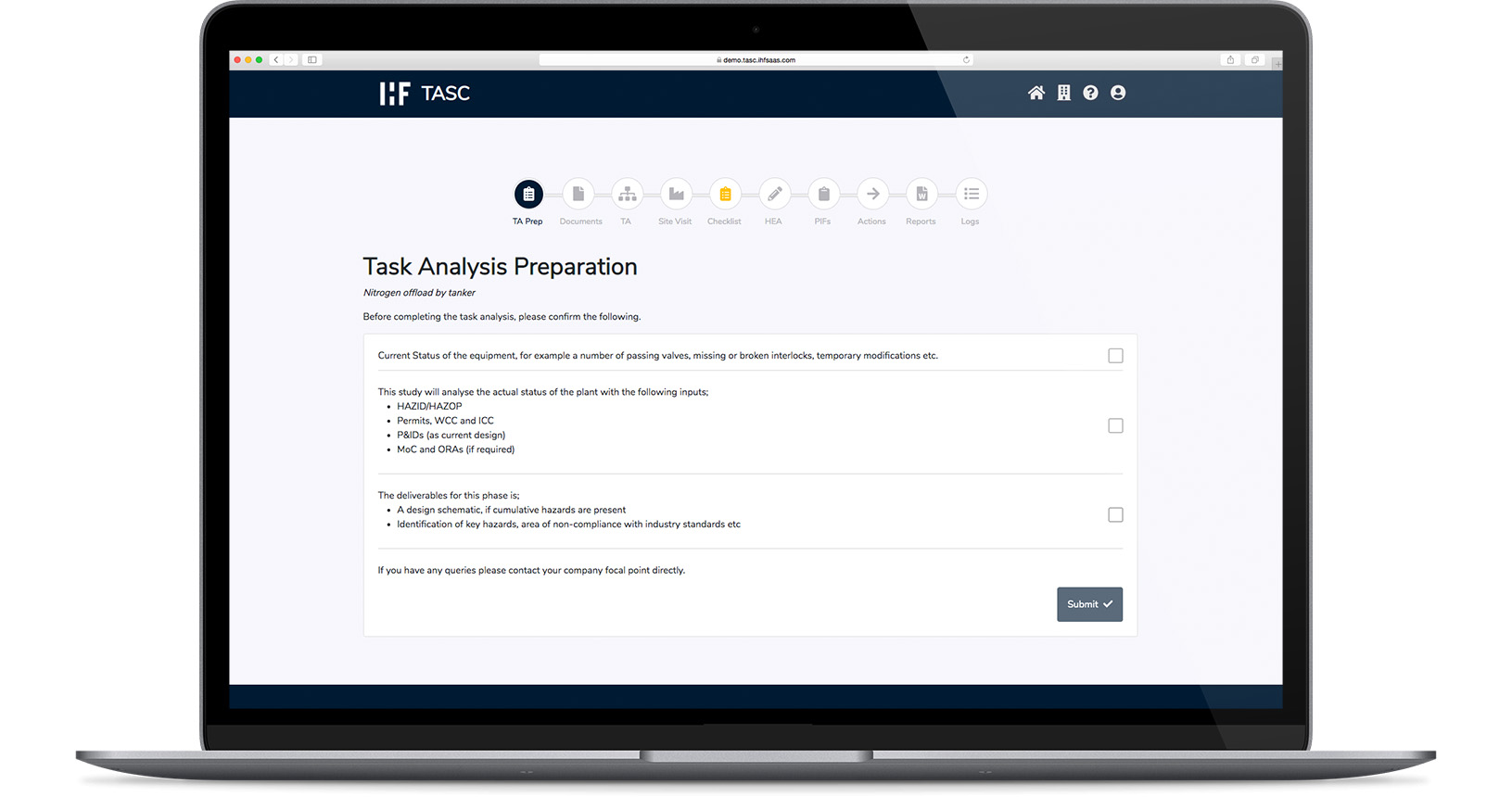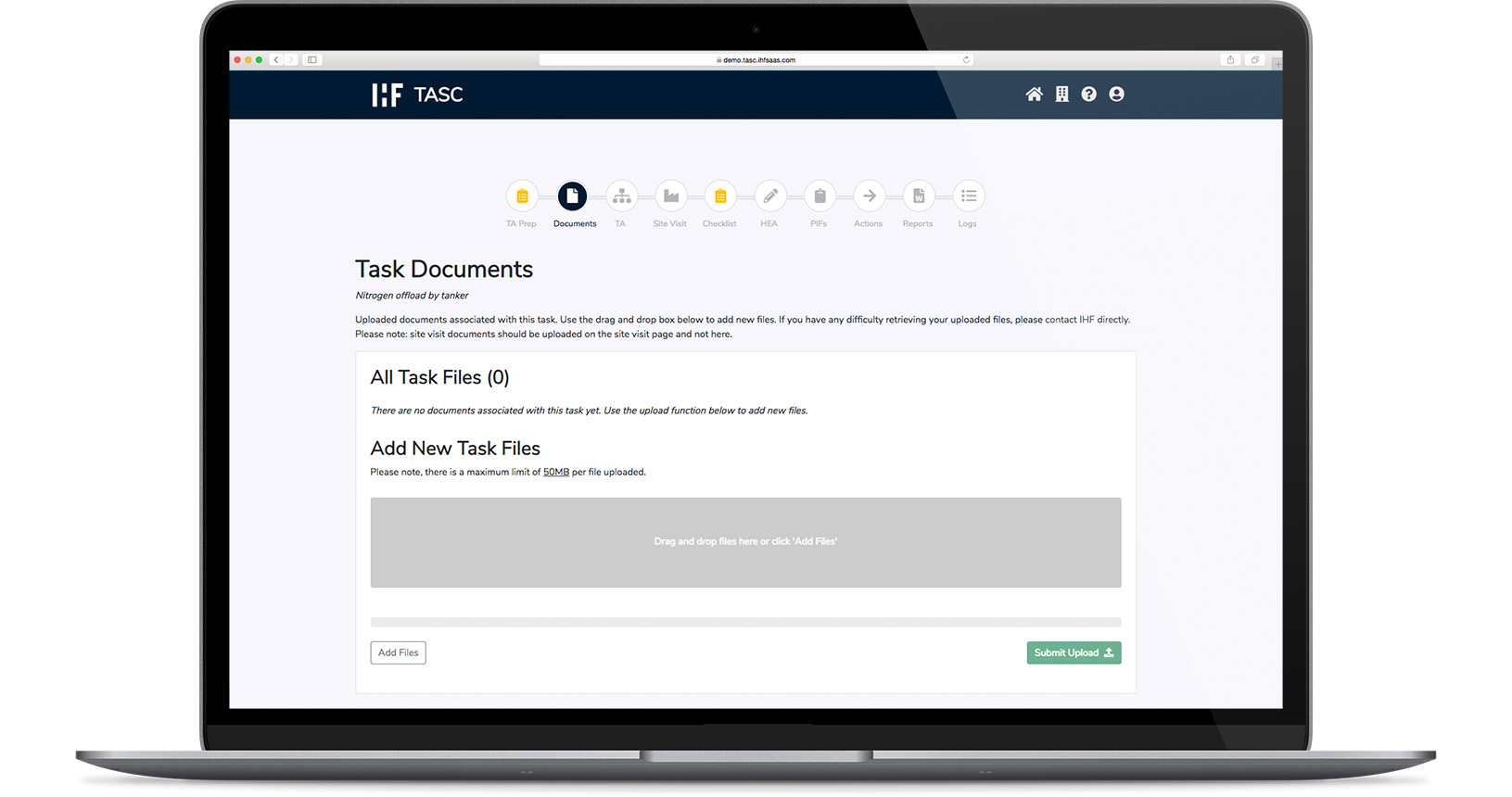What is a safety critical task analysis (SCTA)?
An SCTA helps you identify areas of a task or procedure that are susceptible to human failure. It focusses not just on how tasks may go wrong but also on how to execute them correctly.In addition to the obvious safety benefits, SCTA improves business performance and can be applied to any task, process, procedure that involves human interaction within any industry and any size of organisation.
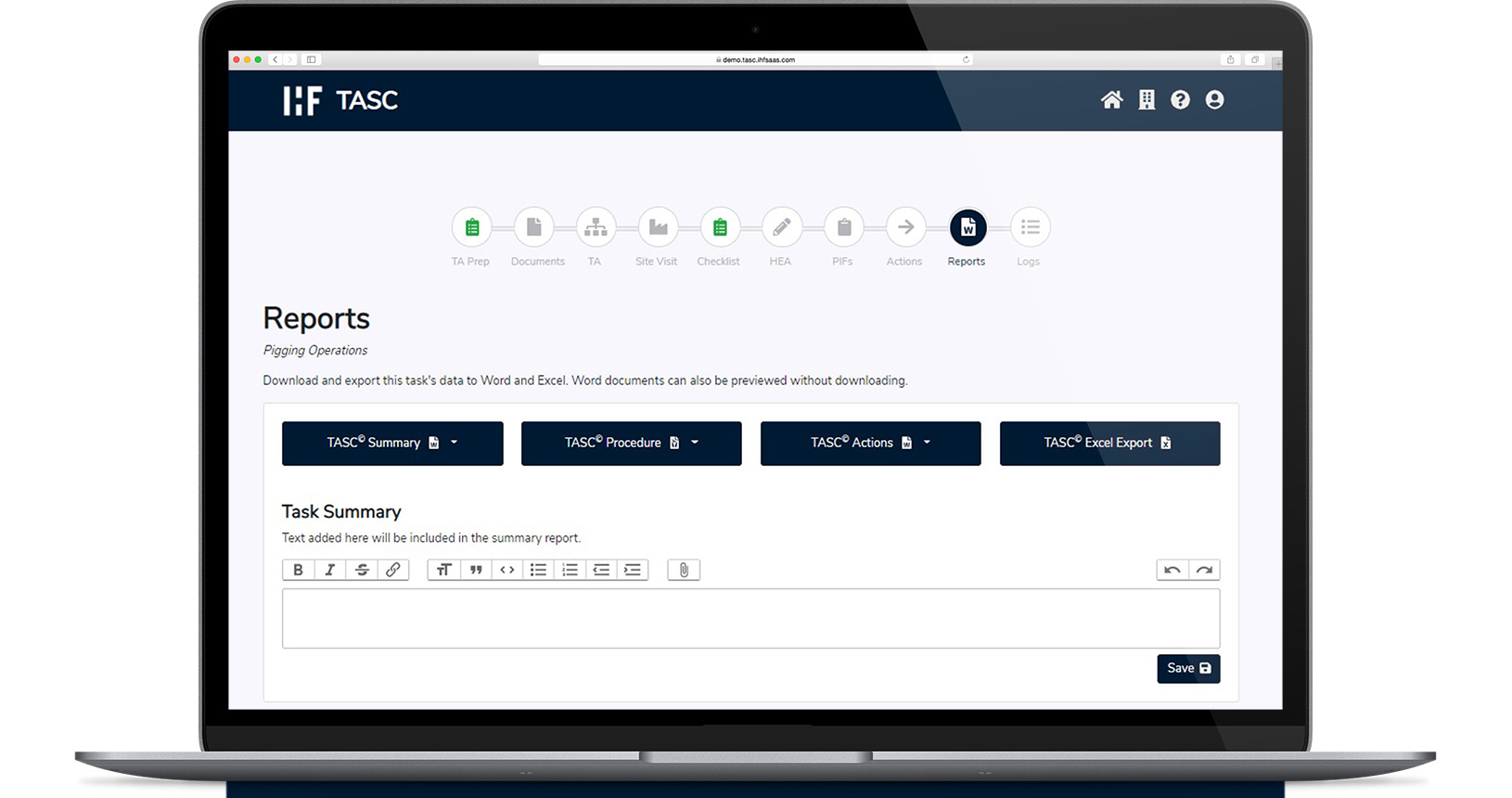
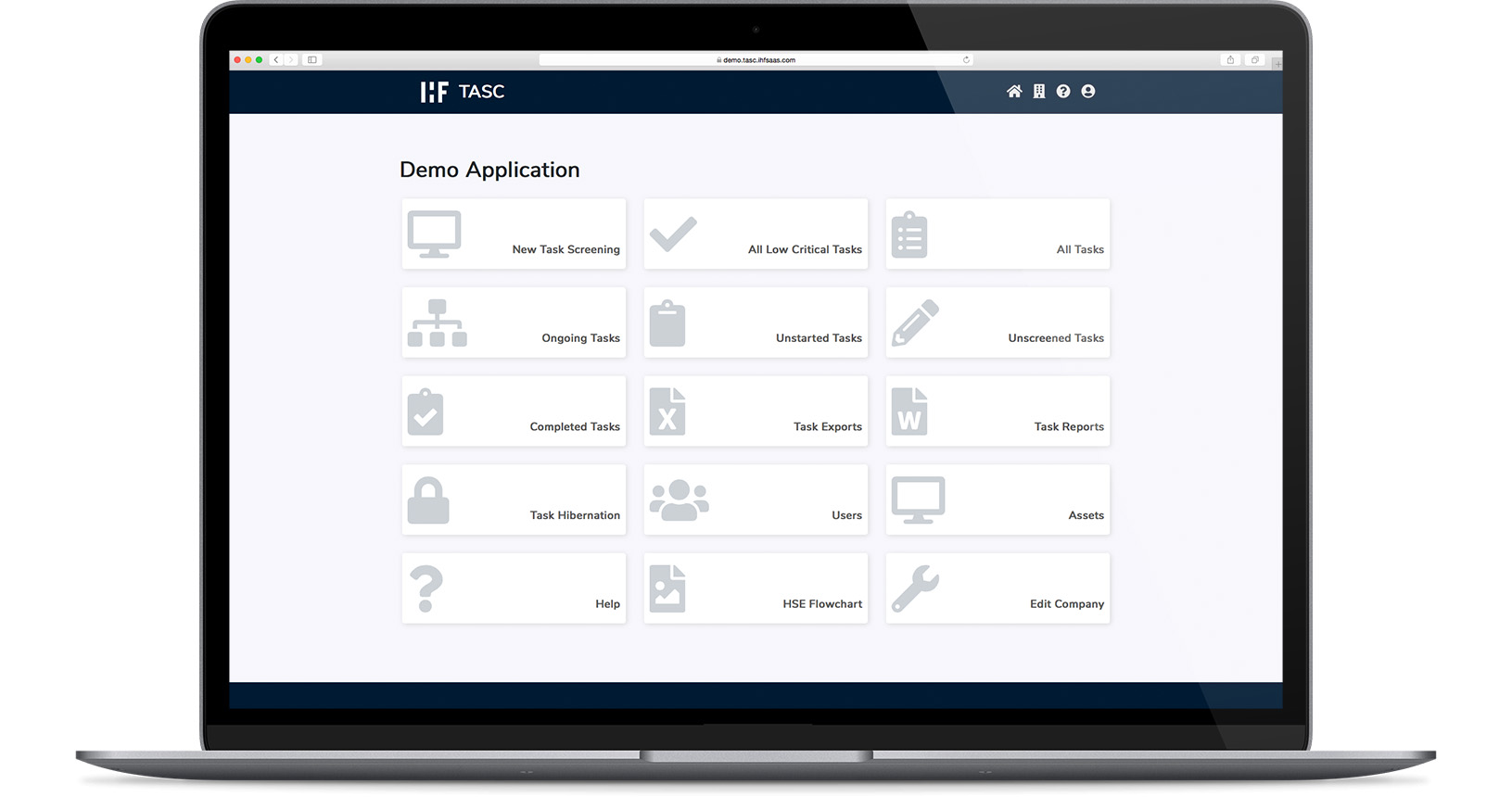
What's different about TASC?
TASC is an online tool with a straightforward, step-by-step process for carrying out safety critical task analyses. Your tasks can be edited in real-time and the reports produced follow a logical structure so can be shared with all stakeholders in your company. By offering guidance, TASC helps to upskill your team and reduces reliance on project-based consultants. Also important to note, TASC has been developed with input from the Heath and Safety Executive. Final reports meet the regulatory requirements of many different high risk industries, including COMAH, Oil and Gas, Nuclear and Transport.The TASC process
A full SCTA can be conducted using TASC. Below is a summary of the process that can be carried out using the software.
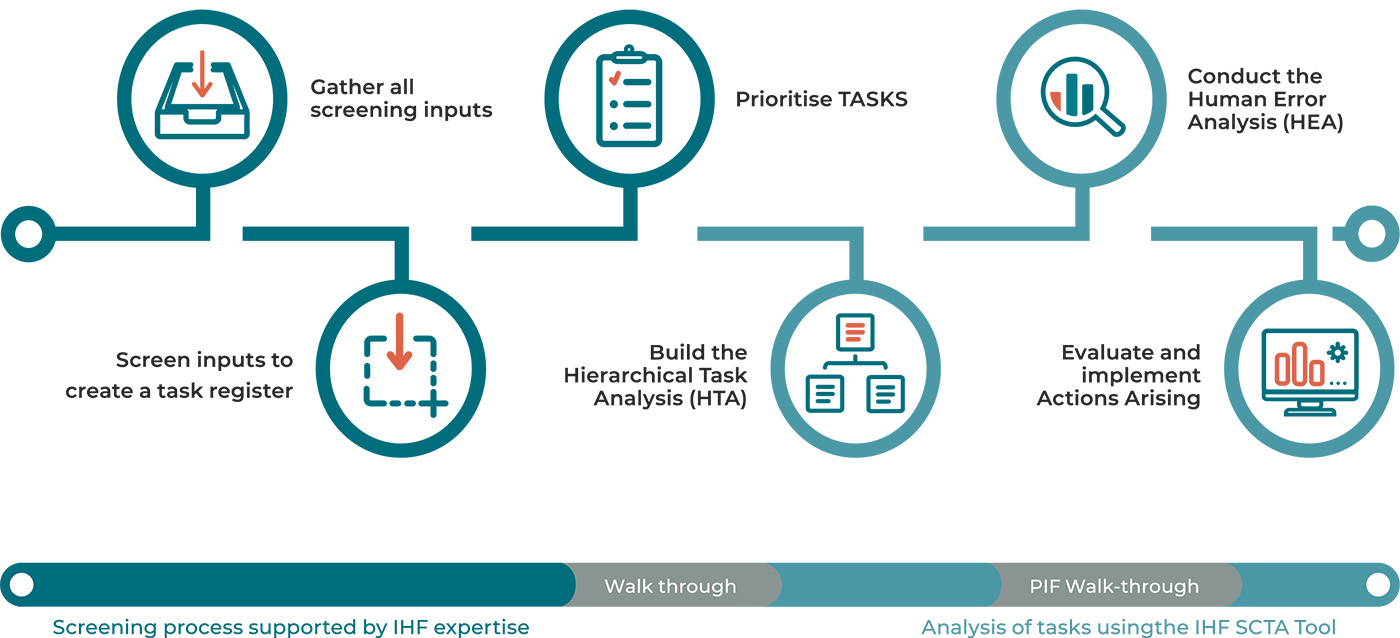
Key benefits
- Streamlined, logical and easy to use
- A methodology that is effective in all industries E.g. offshore, COMAH & nuclear
- The flexibility to tailor the tool to any classification of Human Failure and Performance Influencing Factors
- Keeps all SCTA information in one place
- Standardises the SCTA process across the organisation
- Cost savings by enabling the organisation rather than relying on 3rd parties
Support
We always provide training and technical support with the SCTA tool. However, we recognise that clients often have different needs and expectations. Therefore, we offer the following optional support:
- Developing/reviewing SCTA procedures (including screening tools)
- Providing additional ‘expert’ input and reviews
- Customisation of the tool – E.g. Integrating ‘preferred’ human failure and PIF classifications into the tool
- Additional support from our range of Human Factors services



